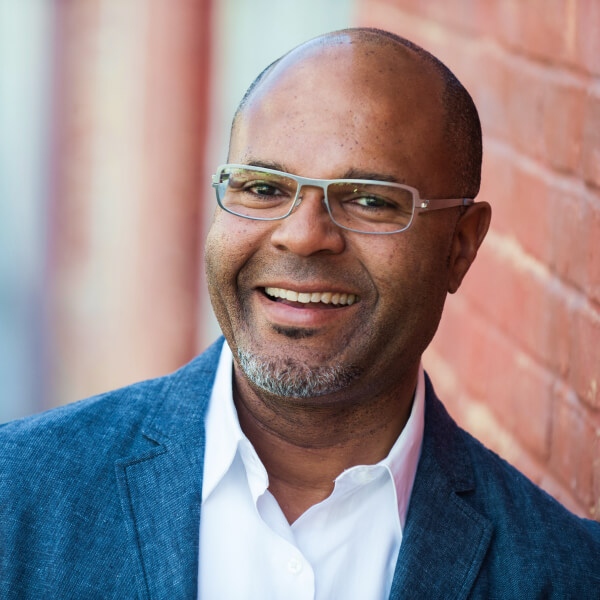Our lives are so full. Meet up with any friend, ask them how they’re doing and you are more than likely to get a response that implies how busy they are. Busy. Sadly, this is often my own default response and I find it bothersome. “Busy”says nothing about how I’m really doing, what is inspiring or challenging me, or what’s making me feel alive. As I reflect on what being “busy” means to me, I realize it is more a reflection of the quantity of things facing me. My other default response is “good” which belies a frequent feeling of overwhelm from the staggering multiplicity of inputs in my daily life. Admitting this is a level of vulnerability that I’m not always quick to offer.
It is estimated that 225 billion emails are sent and received worldwide each day. Add to that the number of text or instant messages, pings from Facebook and other social media, calls from friends and colleagues, and more and you get a deluge of information coming at us every day. It’s hard to keep up! Some days I spend a majority of my working hours just managing email. I have friends that don’t even try and, instead, simply delete their entire inbox and start fresh every few months. That initially felt crazy to me but as my inbox count rises I’m beginning to wonder if this is actually a reasonable strategy.
Our minds are also full. In a recent neuroscience workshop created by Dr. Joe Dispenza, I I learned that we have 60-70,000 thoughts a day. And, alarmingly, 90% of those thoughts are recurring, a churning rooted in the past or in the future. Constantly “on” is the new normal and we’ve become chronically busy. Thomas Merton, famed writer and theologian, describes this busy-ness as a kind of violence. “To allow oneself to be carried away by a multitude of conflicting concerns, to surrender to too many demands, to commit oneself to too many projects, to want to help everyone in everything, is to succumb to violence…” Omid Safi, Professor of Asian and Middle Eastern Studies at Duke University, goes as far as to describe being “busy” as a disease — “This disease of being “busy” (and let’s call it what it is, the dis-ease of being busy, when we are never at ease) is spiritually destructive to our health and wellbeing. It saps our ability to be fully present with those we love the most in our families, and keeps us from forming the kind of community that we all so desperately crave.” In short, being constantly busy harms us.
For many, chronic busy-ness can lead to chronic stress. “Human beings aren’t designed to expend energy continuously,” says Tony Schwartz, founder of The Energy Project. Our bodies and minds need rest to renew, refresh, reflect, and focus. Contrary to popular belief, it doesn’t help our work productivity either, especially when we’re busy at the wrong things.
Recently, I had a helpful reminder of the importance of taking time to rest. On my drive into work I miraculously beat traffic and arrived 30 minutes early for a meeting. It was a gorgeous California day and with this unexpected luxury of time I decided to grab a cuppa joe, take a breather, and catch some sun. I closed my eyes and found myself breathing more deeply. My shoulders dropped, my jaw relaxed and my energy shifted as I settled in. The time felt expansive and spacious. I felt a little more alive and energized and the anxious thoughts I had about the upcoming meeting evolved into excitement about its creative possibilities. Sadly, this is not how my busy days normally play out.
There is a term for the kind of unexpected spaciousness I found that morning – yutori. Poet Naomi Shehab Nye learned this word from a Japanese student. It is like “leaving early enough to get somewhere so that you know you’re going to arrive early, so when you get there, you have time to look around.” With yutori, life becomes more like a poem. Naomi’s post in OnBeing (Krista Tippett’s popular podcast and blog series) reflected on the ways you might view your life as a poem. Her student eloquently further explained, “when you think, when you’re in a very quiet place, when you’re remembering, when you’re savoring an image, when you’re allowing your mind calmly to leap from one thought to another, that’s a poem. That’s what a poem does.”
The poetry of my busy days feels rapid-fire and chaotic; not very legible nor beautiful. Sure, it is poetry but not the kind of poem I ideally want my life to be. When I consider the immense benefits I quickly enjoyed that one morning, I see that my life can be a more enlivening and inspired overall experience. To achieve this kind of poetry in your own life, try the following:
- Intentionally build space in your schedule to arrive early, rather than packing meetings back to back with little or no transition or travel time.
- Carry a journal or small notebook with you and regularly write down your thoughts and feelings or creative ideas or use it to explore solutions.
- Notice your breath and body sensations.
- Start meetings with a check-in, one-minute meditation, or a moment of silence.
- Create time to meaningfully connect with colleagues. Actually get to know them.
- Slow down your conversations to focus attention and make room for thoughtful inquiry, listening, and deliberation.
- Take breaks in your day to stand up, walk around, get outside.
- Create “no email” zones in your day where you can have think time or concentrate planning or creative projects.
Arriving early for an appointment is just one form of intentional spaciousness. How can you create more yutori in your life?











